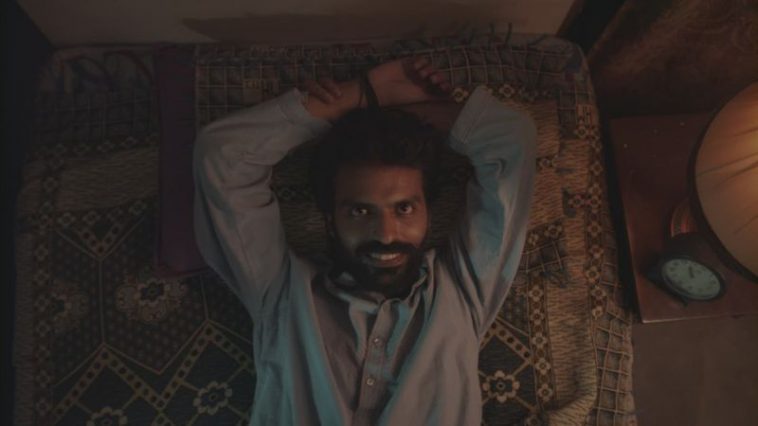Over the past few years, Pakistani viewers have witnessed a slew of web series, with the range varying from barely passable to the rather watchable ones. A missing element in most has been a gripping narrative that has its roots in the country’s contemporary society and its unique stories told in a manner that is more powerful than a typical television serial. Therefore, sitting down to watch ‘Phaatak,’ a new web series from PikchurTV, this writer didn’t have high expectations given the type of digital content we have witnessed in recent years – although, with a cast that features A-listers like Amna Ilyas, Saleem Mairaj and Sohail Sameer amongst a host of newcomers, there was hope that this just may be not your average web-series. Confirming the positive signs, the 5-part series turned out to be surprisingly engaging, featuring an interesting narrative and offering an altogether novel perspective on the war on drugs.
Many of us have grown up watching shows like ‘Breaking Bad,’ and ‘The Wire,’ which revolve around the narcotics manufacture, distribution, and consumption subculture. Yet, despite a few influences that draw from these series (which may be entirely coincidental), ‘Phaatak’ remains wholly original. If anything, the show is more of an expose around how the drug menace flourishes in the country, benefitting in no small measure from barely-functional law enforcement and the criminal justice system. The plot is simple enough: A small-time drug dealer, Abdul Rehman aka Mani (played by Sarmed Aftaab Jadraan), is coerced into working for a different dealer. Drug dealers are known to protect their territory quite viciously, and the same happens here, although the narrative explores more than just the repercussions of Mani’s changing loyalties – and that is where its strengths lie.
The show offers well-thought of vignettes into the broader drug-related sub-cultures that also work as a scathing critique of the anomalies and gaping flaws of contemporary Pakistani urban society. In trying to sell all his stash, Mani stumbles from the crumbling, litter-strewn streets where he usually meets his customers, into the decadent lifestyle of the rich, with plush parties and extravagant weddings. One such well-to-do customer is a bride-to-be, essayed by the always reliable Amna Ilyas. Bonding rather well with Mani, her character is revealed to have motives beyond just ordinary drug consumption in connecting with her newfound drug supplier. Quite a few scenes explore the protagonist’s awe at the opulence of his new clients, opulence which stands starkly in contrast to the decrepit surroundings of his daily life existence and which seems rather vulgar in face of his struggles to barely stay afloat in the cesspool he inhabits. Mani’s interactions with law-enforcement personnel – a key element of the narrative, offer an entirely different angle on how the entire web of narcotics supply and consumption flourishes in the country and are a key element of the plot.
Quite refreshingly, the series is not another one of those public relations ventures backed by the police or other elements of the state, which also means there are no holy cows in the plot. Characters are not sugarcoated and relationships, including friendships, are portrayed in all their gray shades — even the villains are not outrightly portrayed as dark and black. In terms of pacing, the narrative moves at quite a decent pace, although there are portions starting with the third episode where it somewhat slackens. However, rest assured that there is quite a bit of storyline to cover (or rather, uncover) in the series’ five episodes, with plot twists and surprises materializing right till the concluding scene of the season. In terms of production, ‘Phaatak’ is shot with minimal lighting in dark, sepia-tinted frames, photography which goes rather well with the rather dark subject matter at hand. The production values here are possibly better than some indie-flavored films released recently, with one of the highlights being the inventive sound design that utilizes a very-listenable soundtrack comprising of urban-flavored hip-hop tracks. The locations and settings within which the show’s characters dwell appear natural and contribute much to its realism.
In terms of performances, Sarmed Aftaab Jadraan brings the everyman on-screen with the street-wise character he says. The actor is quite aptly cast, and his mannerisms, diction, and body language adds much to the show’s viewability. His expressions and reactions in some scenes – such as where he enters the starkly elite-ish surroundings for the first time, truly capture the surreal element of the show. Jadraan’s performance is complemented in no small amount by veteran actor Saleem Mairaj. Mairaj turns in a truly believable performance – saying anything more would be tantamount to spoiling the show. Amna Ilyas, besides giving a solid account of her thespian skills, also adds much charm and glamor to the show. Supporting cast members, including Sohail Sameer, seen briefly here in a negative role, generally put in a decent performance, and altogether, the show’s acting ensemble works quite well.
The show is directed quite ably by first-timer Saad Vincent Khan. Together with producer Zayan Agha and the show’s executive producers, credit must be given to the team for bringing a storyline to screen that is hard-hitting and which touches upon the sad reality of our times – a reality that might not be limited to just the drug menace, but which indeed plagues basically every sector in the country.
Want to understand the slow-motion chaos around us? Watch ‘Phaatak,’ which can be viewed on PikchurTV (pikchurtv.com). Also the application can be downloaded from these links Android & IOS. Here’s hoping the second season is longer and even more hardhitting.



Comments
0 comments